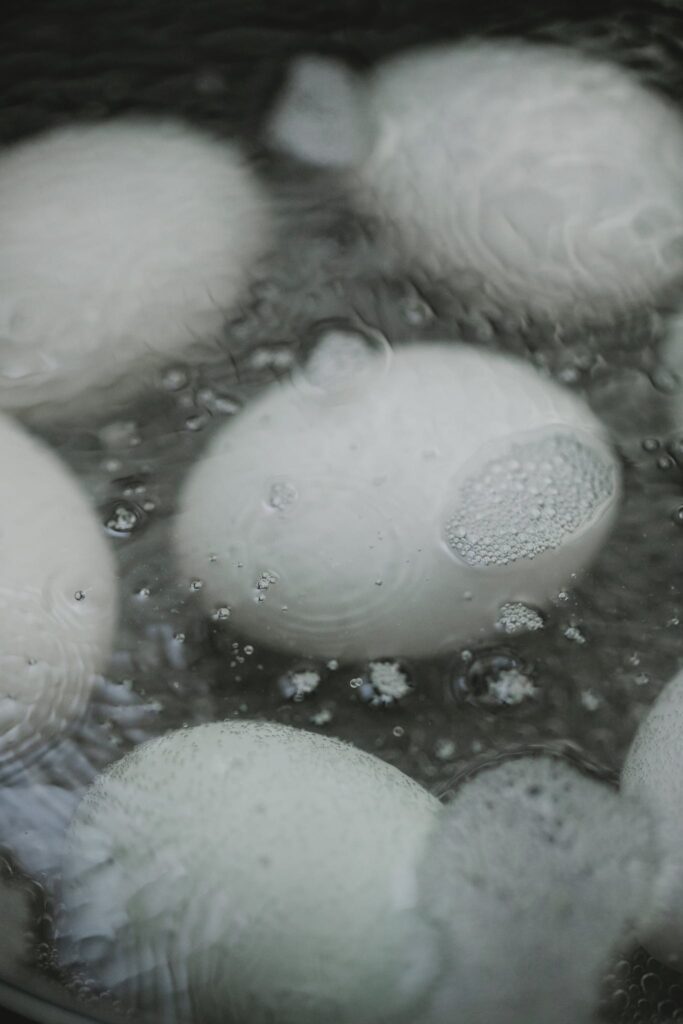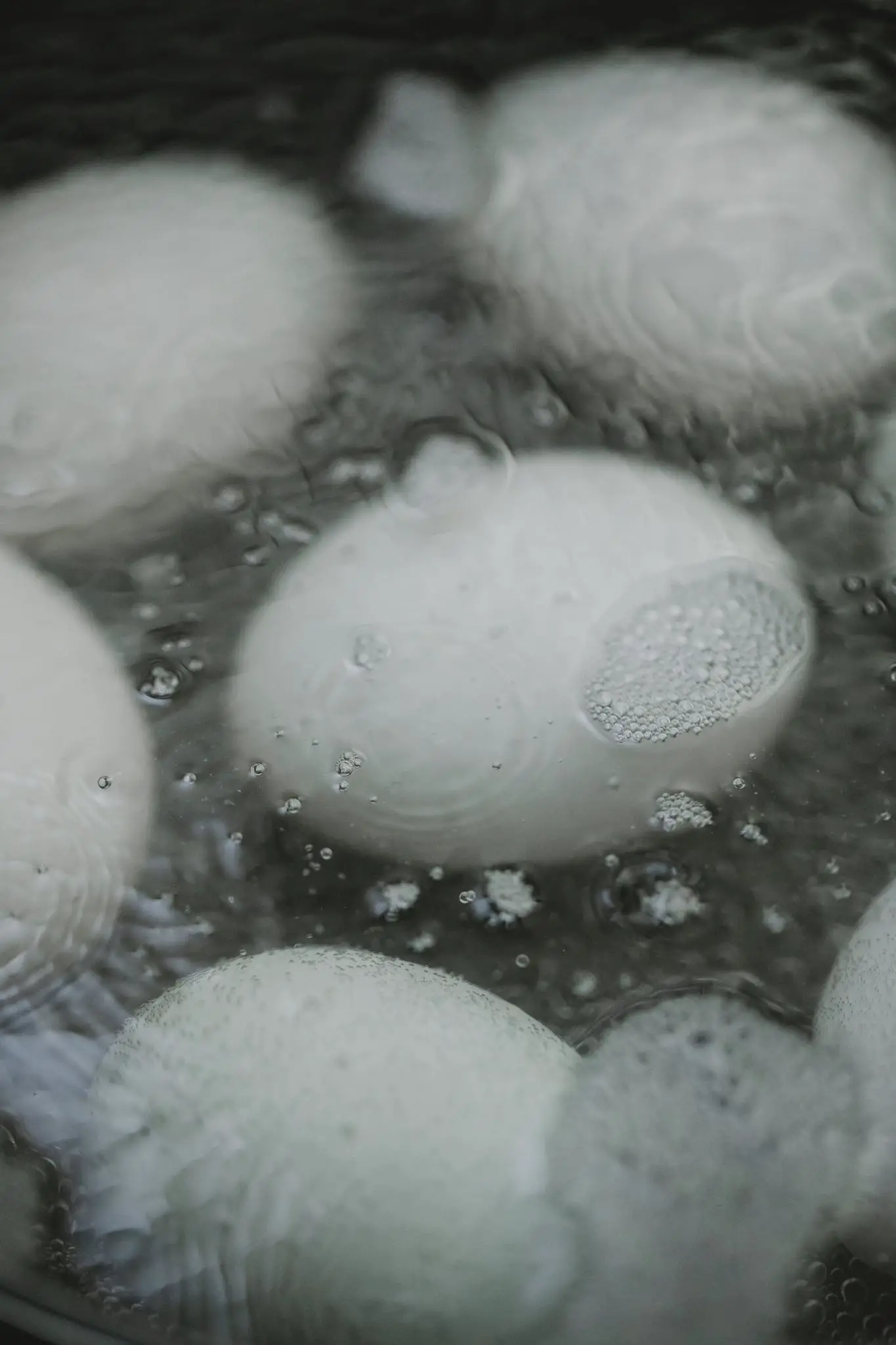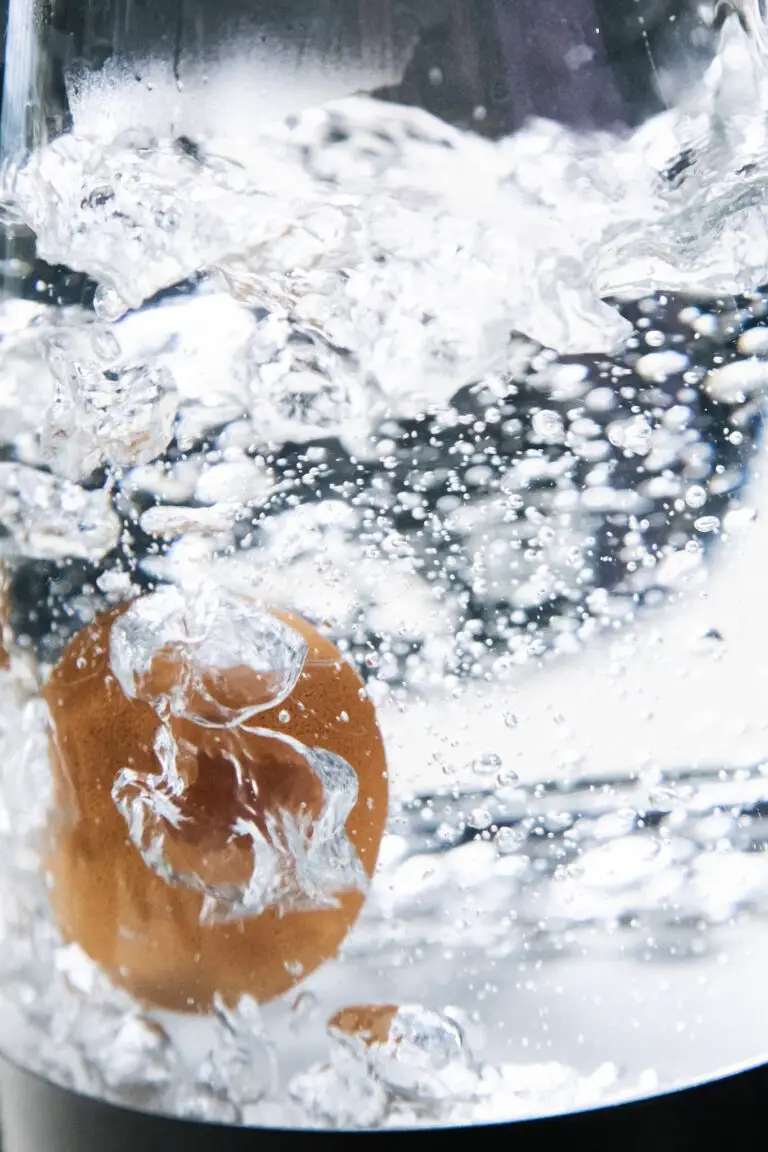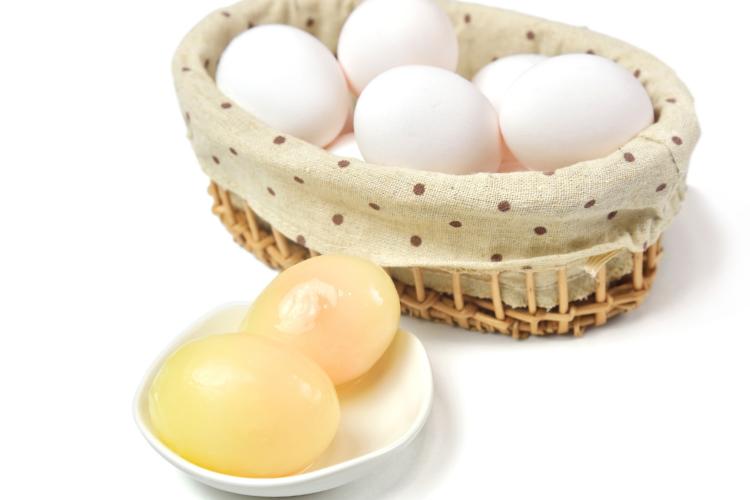When it comes to cooking eggs, there are a variety of methods to choose from. You can fry them, scramble them, poach them, or even bake them. However, one question that often arises is whether it’s possible to boil a frozen egg and, if so, how long it takes to do so.
How Long Does It Take to Boil a Frozen Egg? To boil a frozen egg, you first need to thaw it safely in the refrigerator or using cold water. Once thawed, it takes approximately 4-6 minutes for a soft-boiled egg and 9-13 minutes for a hard-boiled egg, depending on its size and initial temperature. Be sure to follow safety guidelines for a successful outcome.

How Long Does It Take to Boil a Frozen Egg?
Boiling a frozen egg is possible, but it requires a crucial thawing step first. To safely boil a frozen egg, you should thaw it either in the refrigerator, which can take a few hours to overnight depending on the egg’s size, or by using the cold water method, which typically takes about an hour or less. Once the egg is fully thawed, you can proceed with the boiling process. The actual boiling time varies based on factors such as the egg’s size, its initial temperature, and your desired doneness. Generally, a soft-boiled frozen egg will take about 4-6 minutes, while a hard-boiled one may require 9-13 minutes. Always handle eggs with care, following safety guidelines, for a successful and delicious outcome.
Can You Boil a Frozen Egg?
Before we delve into the details of how long it takes to boil a frozen egg, let’s address the fundamental question: can you actually boil an egg that’s straight from the freezer?
The short answer is yes, you can boil a frozen egg. However, there are a few important considerations to keep in mind. First and foremost, you should never attempt to boil an egg that is still in its shell and frozen. This is because water expands as it freezes, and the pressure inside the eggshell can cause it to crack or even explode when heated. To avoid this, you’ll need to thaw the egg before boiling it.
Thawing a Frozen Egg
Thawing a frozen egg is a crucial step in preparing it for boiling. There are two safe methods for thawing eggs:
- Refrigerator Thawing: Place the frozen egg in the refrigerator and allow it to thaw slowly. This method is the safest because it keeps the egg at a consistent and safe temperature. It can take anywhere from a few hours to overnight for an egg to thaw using this method, depending on the size of the egg.
- Cold Water Thawing: If you need to thaw the egg more quickly, you can use the cold water thawing method. Put the frozen egg in a sealed, leak-proof plastic bag and submerge it in a bowl of cold water. Change the water every 30 minutes to ensure it stays cold. Thawing using this method typically takes about an hour or less.
Once the egg is fully thawed, it’s safe to proceed with boiling.
The Boiling Process
Boiling an egg, whether it’s fresh or frozen, involves a relatively straightforward process. Here are the steps to follow:
- Fill a Pot with Water: Place a pot on the stove and fill it with enough water to fully cover the egg. Make sure you use enough water to allow for some displacement when you add the egg.
- Bring the Water to a Boil: Turn the heat to high and bring the water to a rolling boil.
- Gently Add the Egg: Using a spoon or tongs, gently add the thawed egg to the boiling water.
- Set a Timer: The cooking time will vary depending on your desired doneness. For a soft-boiled egg, cook for 4-5 minutes. For a hard-boiled egg, cook for 9-12 minutes.
- Remove and Cool: Once the timer goes off, carefully remove the egg from the boiling water and place it in a bowl of ice water to stop the cooking process. This will also make it easier to peel the egg later.
Timing Considerations
Now that you know the basic process for boiling a frozen egg, let’s dive into the specifics of how long it takes to achieve the desired level of doneness. The cooking time for a boiled egg varies depending on several factors, including the initial temperature of the egg, its size, and the altitude at which you’re cooking. Let’s break it down:
Initial Egg Temperature
The starting temperature of the egg plays a significant role in determining how long it takes to boil. A fully thawed egg at room temperature will require less time to cook than an egg that is still slightly cold from the refrigerator.
- Room Temperature Egg: If you’re working with an egg that has been brought to room temperature, you can achieve a soft-boiled egg in about 4-5 minutes and a hard-boiled egg in 9-12 minutes.
- Refrigerator Temperature Egg: An egg straight from the refrigerator will need a bit more time. It will take approximately 5-6 minutes for a soft-boiled egg and 10-13 minutes for a hard-boiled egg.
Egg Size
The size of the egg also affects the cooking time. Larger eggs will generally take longer to cook than smaller ones. Here’s a rough estimate for different egg sizes:
- Small Eggs (about 1.25 ounces or 35 grams): Soft-boiled in 4-5 minutes, hard-boiled in 9-11 minutes.
- Medium Eggs (about 1.75 ounces or 50 grams): Soft-boiled in 5-6 minutes, hard-boiled in 10-12 minutes.
- Large Eggs (about 2 ounces or 57 grams): Soft-boiled in 6-7 minutes, hard-boiled in 11-13 minutes.
Keep in mind that these times are approximate, and it’s essential to check the doneness of the egg by cracking it open to ensure it’s cooked to your liking.
Altitude
The altitude at which you’re cooking can also impact the boiling time. At higher altitudes, water boils at a lower temperature due to reduced atmospheric pressure. This means that you may need to increase your cooking time slightly. As a general rule of thumb, add about 20-30 seconds to the cooking time for every 1,000 feet (300 meters) above sea level.
Safety Considerations
Boiling frozen eggs, or any eggs for that matter, comes with safety considerations. Here are some essential safety tips to keep in mind:
- Thaw Properly: Ensure that you thaw frozen eggs safely using either the refrigerator or cold water thawing method. Never attempt to boil an egg that is still frozen in its shell.
- Handle with Care: When adding the egg to the boiling water, do so gently to avoid cracking the shell. Use a spoon or tongs to lower it into the pot.
- Avoid Overcooking: Overcooking an egg can lead to a greenish-gray ring around the yolk and a less appealing texture. Follow the recommended cooking times for your desired level of doneness.
- Use Fresh Eggs: Fresher eggs are easier to peel after boiling. If possible, choose eggs that are not too close to their expiration date.
- Cool Quickly: After boiling, immerse the egg in ice water to stop the cooking process and make peeling easier.
- Store Properly: If you don’t plan to eat the boiled egg immediately, store it in the refrigerator for up to one week.
Conclusion
In conclusion, it is indeed possible to boil a frozen egg, but it requires proper thawing before cooking. Thawing can be done in the refrigerator or using the cold water method. Once the egg is thawed, you can follow the basic boiling process to cook it to your desired level of doneness. The cooking time will depend on factors such as the initial temperature of the egg, its size, and the altitude at which you’re cooking.
Remember to handle eggs with care, and always follow safety guidelines to ensure a delicious and safe culinary experience. Whether you prefer your egg soft-boiled or hard-boiled, with a little practice and attention to detail, you can enjoy a perfectly boiled egg every time, even if it started out frozen.







